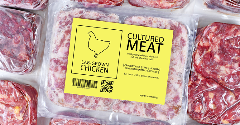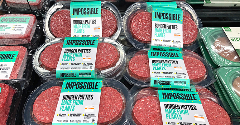News
Ground cinnamon’s lead levels trigger FDA call for more stringent testing
28 Mar 2024Following the discovery of elevated lead levels in ground cinnamon, the US Food and Drug Administration (FDA) has asked cinnamon processers to be more vigilant about testing to ensure that supplies of the spice comply with health and safety regulations.
Earlier this month, the FDA sent a letter to cinnamon processors throughout the US, highlighting six manufacturers found to be supplying ground cinnamon with elevated levels of lead.

The FDA says that ground cinnamon supplied by La Fiesta Food, Moran Foods, MTCI, Raja Foods and Greenbar International were found to have lead concentrations of between 2.03 and 3.4 parts per million (ppm) following tests conducted in various States across the nation using the Laboratory Flexible Funding Model.
The organisation is recommending that cinnamon processors refer to Part IV of FDA's compliance program 7304.019, "Toxic Elements in Food & Foodware and Radionuclides in Food - Import and Domestic" for methodologies used by FDA to test for lead in food products.
“Some precautions manufacturers can take to help prevent unsafe levels of lead in food include ensuring their equipment is not contributing to lead in a product – for example, ensuring they are not using non-food grade equipment containing lead - choosing sources of food or food ingredients with lower lead levels or no detectable lead, following Good Agricultural Practices to mitigate uptake of lead during growing, using cleaning methods to minimize contributions from soil and the environment, and systematically testing food for lead and other heavy metals,” said Laura Niles, FDA health communications specialist.
Six distributors asked to recall ground cinnamon
“Based on results from these analyses, FDA is recommending recalls of ground cinnamon from six distributors whose products had the lead levels noted. FDA is recommending recall of these products because prolonged exposure may be unsafe,” the letter states.
According to the FDA, all the companies involved in the recall are working with the organisation to voluntarily recall the products, with the exception of MTCI which has not yet responded to the FDA’s request. Niles noted that the FDA has subsequently learned that MTCI had gone out of business.
“Food growers, manufacturers, importers, and retailers share a responsibility for ensuring the safety of the foods that reach store shelves,” said Jim Jones, deputy commissioner for human foods at the FDA.
“The levels of lead we found in some ground cinnamon products are too high and we must do better to protect those most vulnerable to the negative health outcomes of exposure to elevated levels of lead.”
An emphasis on chemical hazard prevention
The FDA wants manufacturers, distributors, and processors to follow the requirements for risk and hazard prevention for human foods, with particular attention to testing for chemical hazards that could be present in products bound for retailer’s shelves.
The FDA also said it would continue to conduct testing and says it will request the removal of any cinnamon products, should they prove to be unsafe.
The FDA did not respond to questions from Ingredients Network about the recall but did state that it was continuing to stress the importance of its Closer to Zero initiative, which aims to reduce exposure to food contaminants in children.
Closer to Zero aims to protect children
This initiative has a particular emphasis on reducing potentially dangerous levels of lead, arsenic, chromium, and mercury, which are all deemed to be particularly hazardous to young children.
The FDA’s latest move comes after several incidents across the US involving around 500 consumers - mainly young children – who fell sick after consuming apple sauce pouches that had been formulated with contaminated cinnamon.
The incidents first came to light in October 2023 and involved the recall of apple and cinnamon pouches made under the Weis, Schnucks, and WanaBana brands.
This recall was significantly more serious than the current ground cinnamon recall. FDA testing showed that lead levels in the ground cinnamon used to formulate the apple sauce pouches were tested at 2,000 to 5,000ppm, compared to the 2.04 to 3.4ppm for the current recall.
Lead chromate has been used to add weight
The high levels of lead found in the apple sauce pouches caused a number of individuals to become sick almost immediately with a variety of symptoms associated with lead poisoning, including nausea, headaches, and muscle aches. The lower levels of lead found in the more recent batches of ground cinnamon are not thought to pose an immediate effect on humans but could prove risky with prolonged use.
As part of the apple sauce pouch investigation, the FDA reviewed 90 complaints from consumers, later confirming that there were elevated lead chromate levels in the cinnamon ingredient. Historically, such substances have been illegally added to cinnamon in an effort to increase the weight of the powder.
The organisation’s subsequent investigation led to the recommendation that cinnamon manufacturers and suppliers make a concerted effort to avoid such contaminants, with a further recommendation for a voluntary recall of a number of potentially contaminated food brands.
Related news

UK consumers could be eating cultivated meat within two years
26 Mar 2025
Cell-cultivated products (CCPs), from chicken nuggets to beefburgers, could be on UK supermarket shelves by 2027 after regulators launched a sandbox to accelerate approvals.
Read more
Protein diversification: A massive missed market?
20 Feb 2025
Germany and the UK could be missing out on the massive market for alternative meats and proteins, with one new coalition calling for an end to the “steak-tofu struggle”.
Read more
Most consumers lack trust in AI, but supplement users are ready to embrace the technology
14 Feb 2025
A survey of UK and US consumers found that most supplement users are willing to let AI make decisions on their behalf, but they also demand greater transparency.
Read more
Indians enjoy first bites of cultivated chicken
13 Feb 2025
The first public tasting of cultivated meat in India has taken place as the country prepares for the first commercial cultivated meat products – potentially as early as the end of this year.
Read more
UK publishes latest food security report
12 Feb 2025
The UK government releases its food security report 2024, detailing five core themes for bolstering and securing the future of the country’s food.
Read more
Leading regulatory updates in Asia in 2025
7 Feb 2025
As we head into 2025, numerous legislators around Asia are suggesting and solidifying legal updates and changes that will impact the food and beverage space.
Read more
Singapore introduces Food Safety and Security Bill
3 Feb 2025
Amid growing food safety concerns and supply chain disruptions, the Singapore Food Agency passes its Food Safety and Security Bill (FSSB) to provide greater clarity, assurance, and credibility.
Read more
Impossible Foods secures reinstatement of EU patent for heme protein
28 Jan 2025
The decision overturns the 2022 revocation of the patent and solidifies legal protection of the innovative ingredient that can be used in plant-based food production.
Read more
US wins GMO corn trade dispute with Mexico
24 Jan 2025
A Mexican decree banning imports of genetically modified (GM) corn for human consumption has been overturned in what has been hailed as a victory for US exports.
Read more
EU Parliament passes stricter packaging rules
20 Jan 2025
The European Parliament voted to approve updates to the packaging and packaging waste regulation, including enforceable re-use targets, limits on certain single-use packaging types, and restrictions on the use of PFAS “forever chemicals”.
Read more